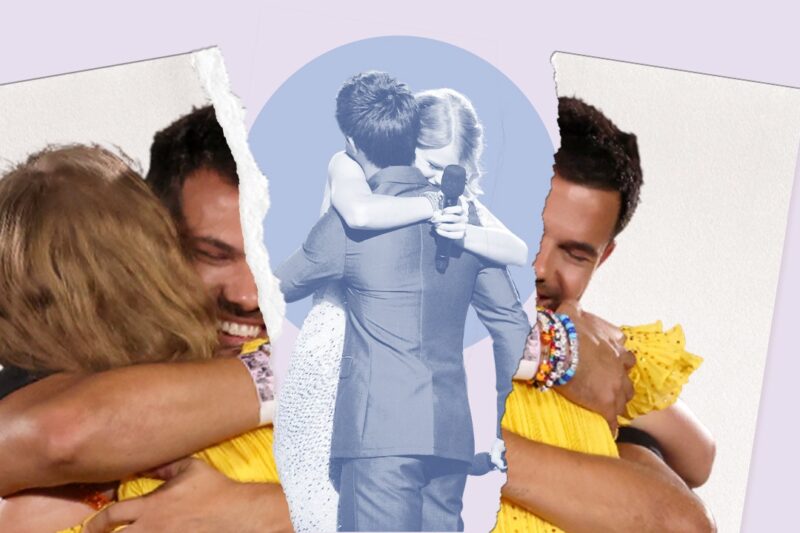After the end of a romantic relationship, the idea of staying in each other’s lives as friends can be both comforting and confusing.
The question “can you be friends with your ex?” isn’t just theoretical—it influences healing, future partnerships, and personal boundaries.
When handled well, an ex‑friendship can become a source of mutual support; handled poorly, it risks reigniting old wounds or derailing new romances.
Agape Match, a leading dating service, often advises clients on the delicate balance of remaining friends after a breakup.
Key factors include the nature of the split, the presence of lingering feelings, and respect for any new partners.
By exploring emotional readiness, boundary‑setting, and potential pitfalls, this guide helps determine whether being friends with an ex is a wise choice—or if it’s time to seek a clean break for true closure.
Should You Be Friends With Your Ex?

“Should you be friends with your ex?” hinges on emotional readiness, honest intent, and mutual consent. If both parties have genuinely moved past romantic feelings, respect each other’s boundaries, and share clear motivations—such as co‑parenting or genuine companionship—then being friends with an ex can foster support without reigniting old hurts.
Open communication about expectations (no flirting, no unsolicited advice about new partners) is essential to ensure the friendship starts on stable ground.
However, “should” becomes “shouldn’t” when one person still holds hope for reconciliation or uses the friendship as an emotional safety net.
If staying in contact triggers jealousy, confusion, or emotional pain, then remaining friends risks prolonging the breakup and hurting future relationships.
In these cases, it’s healthier to pause contact and focus on personal healing before reconsidering a friendship.
Pros and Cons of Being Friends With an Ex
Pros of Staying Friends With an Ex
Emotional Support
When two people share a deep history, transitioning to friends can provide a safety net of genuine care.
After the initial breakup healing, an ex who understands your quirks and past struggles can offer validation during stressful times—whether it’s work pressure or family drama.
Shared History
Years of memories, inside jokes, and mutual milestones form a bond few others can match.
This common ground makes conversations effortless and grants each person a sense of continuity, even as life evolves.
Smoother Co‑Parenting
For couples with children, staying friends with an ex often means less conflict and more collaboration. Shared routines, aligned schedules, and mutual respect help create a stable environment, demonstrating healthy cooperation despite the romantic chapter ending.
Cons of Staying Friends With an Ex

Lingering Feelings
One of the biggest risks is that old emotions never fully fade. A casual coffee catch‑up can reignite nostalgia or romantic hope, leading to confusion and emotional setbacks.
Confusion for New Partners
New significant others may struggle with insecurities if an ex remains close. Even well‑meaning messages or in‑group gatherings can spark jealousy, raising the question, “is it okay to be friends with your ex while in a relationship?”
Boundary Creep
Friendship with a former partner can blur lines over time. Without clear guidelines—no late‑night calls, no discussing intimate details of current relationships—friendship can slip back into something more, undermining both parties’ emotional progress.
Why Does My Ex Want To Be Friends?
When an ex suggests staying in touch, it can feel flattering—until you ask yourself, “why does my ex want to be friends?”
Often, the motive is innocent: after years together, they genuinely miss your companionship and appreciate the support you once offered.
They may value your perspective on career decisions or simply enjoy reminiscing about shared adventures, proving that can exes be friends in a healthy, non‑romantic way.
However, not all friendly overtures come from a place of goodwill. Some exes use friendship as an emotional safety net—reaching out only when their new relationships falter or loneliness creeps in.
Others may struggle with closure and cling to old dynamics, subtly testing whether they still hold power over your feelings.
If you notice they contact you late at night with complaints about their dating life, or if they punctuate every conversation with nostalgia for “the good old days,” tread carefully.
Genuine care respects your boundaries; anything less hints at unresolved feelings or a desire to keep you on standby.
Can Being Friends With An Ex Lead Back Into A Relationship?
Friendship can be fertile ground for rekindling romance—sometimes before you even notice. You might catch yourself smiling at their texts, replaying memories of date nights, or feeling protective when they share bad news.
These emotional undercurrents are early signs that can being friends with an ex lead back into a relationship? The answer often lies in subtle boundary erosion:
- Late‑Night Check‑Ins turn from casual hellos into intimate heart‑to‑hearts, reigniting emotional intimacy.
- Comfort‑Driven Meetups become regular one‑on‑one dinners, replacing supportive friendship with familiar couple roles.
- Jealousy Triggers flare when they mention a new interest—or you find yourself uneasy about their other relationships.
To recognize and address this shift, pause after each interaction and notice your emotional response.
If you’re longing for more or feeling let down when they don’t reciprocate, it’s time to reset the rules: limit meetups to group settings, agree on no late‑night calls, or take a break until both hearts have fully moved on.
By staying vigilant and honest, you can prevent friendship from morphing back into a complicated romance.
How To Be Friends With Your Ex?

Successful transition from partners to pals hinges on clear boundaries. Start with an honest conversation about what you both need—whether that means texting only during business hours or limiting in‑person hangouts to group settings.
Define topics that are off‑limits (no rehashing past arguments or discussing current romantic interests) so you know exactly how to respect each other’s emotional space. Writing these agreements down or setting calendar reminders can help both parties stick to the plan.
Maintaining respect and avoiding romantic hang‑ups is equally vital. Treat your ex as you would any close friend: celebrate their successes without envy, listen without expecting emotional support reserved for a partner, and never flirt or share intimate details.
If either person senses old feelings resurfacing, acknowledge it immediately and revisit your boundaries.
By prioritizing mutual respect and transparent communication, you create a stable foundation for genuine friendship—and answer the question, “can you be friends with your ex?” with a confident “yes.”
Is It OK to Be Friends With Your Ex While in a Relationship?
Staying friends with an ex can test the trust and comfort of a new partner.
To ensure emotional safety, it’s essential to respect your partner’s feelings by seeking their input and establishing clear boundaries.
Open dialogue about the nature of your ex‑friendship—when you’ll meet, what you’ll discuss, and how often you’ll communicate—demonstrates commitment to your current relationship.
Healthy communication with all parties prevents misunderstandings.
Share your intentions with both your partner and your ex: reassure your partner that the friendship is platonic, and remind your ex of the boundaries you’ve agreed upon.
If either relationship feels compromised, revisit these agreements and adjust as needed.
| Aspect | Friends With Ex | No Contact |
| Emotional Safety | Requires partner reassurance and check‑ins | Maximum safety; no risk of boundary blur |
| Partner Trust | Built through transparency and respect | Preserved by eliminating potential issues |
| Social Dynamics | Group settings preferred, public meetups | Avoids awkwardness in social circles |
| Personal Boundaries | Clear rules on topics, timing, and context | Implicit—no need for rules |
| Long‑term Impact | Can enrich support network if managed well | Simplifies emotional landscape |
By comparing these approaches, you can decide whether staying friends with an ex aligns with both your partner’s comfort and your own emotional well‑being. Continuous check‑ins and honest conversations are key to making the arrangement work.
Conclusion: Can You Be Friends With Your Ex?

Deciding if you can be friends with your ex boils down to emotional readiness, mutual respect, and clear boundaries.
Ask yourself: Have both of you fully healed? Are intentions transparent? Do you agree on limits? If you answered yes—and you can communicate openly with any new partners—friendship may thrive.
However, if lingering feelings, jealousy, or boundary creep persist, it’s healthiest to hit pause.
Remember: being friends with an ex should enhance your support network, not complicate your emotional landscape.
Only when both parties are truly ready—and committed to a respectful, platonic connection—can ex‑friendships succeed without undermining new relationships or personal growth.

